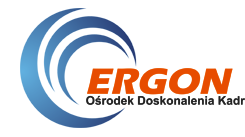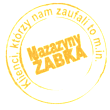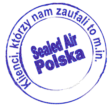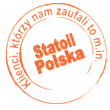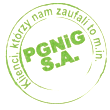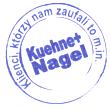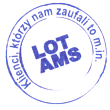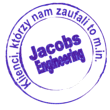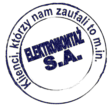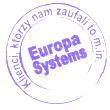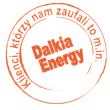IRATA course - the way to work at height
IRATA - origin and importance in the altitude industry
IRATA (Industrial Rope Access Trade Association) is an international association for those involved in rope access work. The organisation was founded in the late 1980s in the UK in response to the need to organise rope access procedures in industry. Its activities focus on developing a consistent training system and a uniform model for assessing technicians. The standards developed have been adopted by numerous sectors of the industry, including power generation, construction, petrochemicals and the offshore industry. As a result, rope access has become a widely used method of working at height, often chosen as an alternative to scaffolding or mechanical platforms. The IRATA system is now in operation in more than 60 countries and is the main reference for companies looking for specialists in this field. Many companies consider the IRATA certification as a condition for allowing an employee to perform height tasks.
Training structure and levels

The certification model is divided into three stages, from basic to supervisory level. The stage labelled L1 is for those starting out in rope access and includes learning the activities performed under the guidance of more experienced instructors. The L2 level takes into account tasks requiring more independence, including participation in rescue operations and support for team organisation. The final L3 level is for those prepared to act as team coordinator and supervise the course of operations. This development path allows the pace of qualification to be matched to individual career objectives. Each stage ends with an exam conducted by an independent assessor accredited by IRATA.
Requirements for candidates and preparation for the course
The course is open to adults who are able to cope with the demands of rope access work. Adequate body preparation and mental attitude are important. Candidates should pay attention to several key aspects:
- no health contraindications to working at height,
- readiness for intense exertion and repetitive exercise,
- resistance to changing weather conditions,
- ability to concentrate and precision in action,
- initial knowledge of belay equipment and basic nomenclature.
This preparation allows theoretical knowledge to be assimilated more quickly and practical skills to be developed more effectively during lessons. This makes the whole learning process more efficient and allows students to make better use of their time at the centre.
Equipment and training facilities
Classes are held in a hall adapted for rope access training. The structures inside the facility allow different working-at-height scenarios to be recreated, allowing trainees to gradually become familiar with conditions similar to those encountered in the field. Harnesses, descenders, clamping devices and self-rescue equipment from well-proven brands in the high-altitude industry are used for training. Each piece of equipment undergoes regular maintenance in accordance with manufacturers' recommendations. Constant access to equipment that is also used in the workplace means that participants can learn about the solutions they will encounter in future projects right from the training phase.
Instructors and standard of teaching
The classes are taught by specialists who are IRATA-certified to the highest level and have a wealth of experience gained from working on industrial projects at home and abroad. Their task is to impart knowledge in a clear and structured manner, with an emphasis on understanding the principles of rope systems. Each stage of the training follows a set scenario, but the trainers adjust the pace to the group's capabilities and the individual predispositions of the participants. An important part of learning is the constant observation of progress and the elimination of mistakes right from the practice stage. A training process organised in this way makes it possible to take the exam with the appropriate technical preparation.
IRATA eligibility and post-training career paths
The certificate issued on completion of IRATA training provides confirmation of practical skills and knowledge of rope access procedures. In many companies, the IRATA qualification is a basic criterion for admission to work at height positions, which significantly increases employment opportunities. Job opportunities for IRATA technicians most often arise in sectors related to structural assembly, technical inspection, energy infrastructure maintenance and anti-corrosion work. Completion of the training opens up employment opportunities in both contractor positions and in teams responsible for servicing high-rise projects. IRATA-certified individuals often continue their professional development by progressing to the next qualification levels.

IRATA training for companies and employee groups
The offer can also be implemented in the form of classes designed for companies that want to train their employees in a single training cycle. This type of organisation allows consistency in the techniques used and standardisation of communication methods during rope work. Courses designed for company teams are conducted according to IRATA standards, with all examination requirements.
Feel free to contact us
Current IRATA course dates are published in the recruitment schedule maintained by the centre. The application for participation does not require complicated formalities and can be sent at any time before the start of the selected edition. Those interested in participating can obtain further information on the rules of participation and available dates by contacting the organising department.
FAQ:
Is previous experience required?
1. is previous experience necessary?
No, the L1 level is designed for people new to rope access. You don't need to have any previous exposure to this type of technique, although basic physical fitness will be helpful. The instructors teach everything from the basics, gradually introducing more elements. More important than experience is a willingness to learn and the ability to work as part of a team.
For how long is the certificate issued?
The IRATA certificate is valid for three years from the date of passing the exam. In order to maintain continuity of your certification, you must undergo recertification during this period, which includes refresher training and reassessment by the assessor. If a break in rope access work lasts longer than six months, additional refresher training is required and, in some cases, even a repeat of the entire course. Such policies are designed to ensure that each technician maintains an appropriate level of skill and can perform their duties safely.
How long does the IRATA course take?
The training normally comprises four days of intensive practical exercises combined with theoretical lectures. The fifth day is dedicated to an exam conducted by an independent IRATA-accredited assessor. Classes are held on a full-time basis, so it is advisable to reserve full availability for this time. Thanks to the compact format, participants are familiarised with the realities of working in rope systems from the start.
What health conditions do you need to meet before starting the course?
The candidate must be of legal age and have the ability to work at height confirmed by a doctor. Contraindications may include balance disorders, uncontrolled seizures, heart disease or fear of heights. It is a good idea to get fit beforehand and to get your body used to exertion in a suspended position. Proper preparation contributes to greater comfort during activities.
